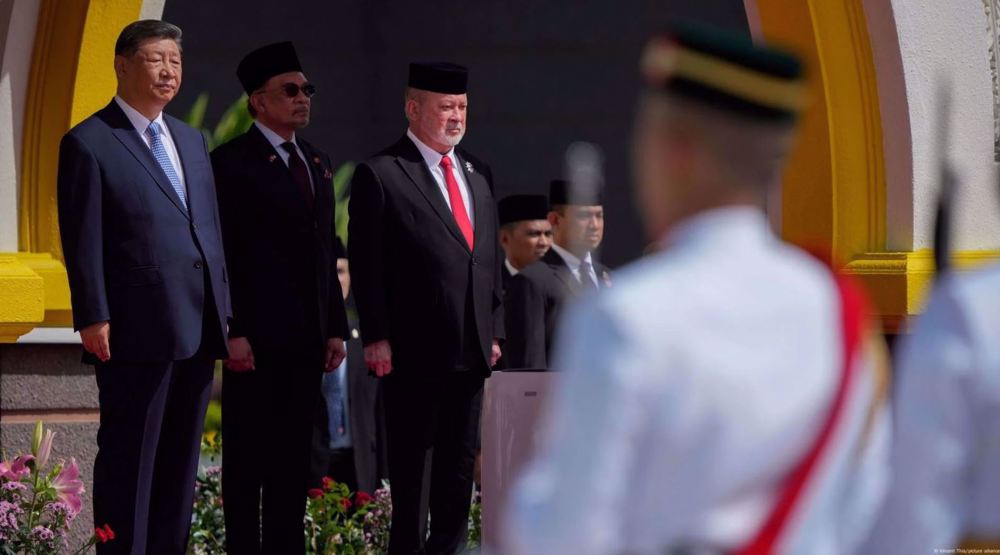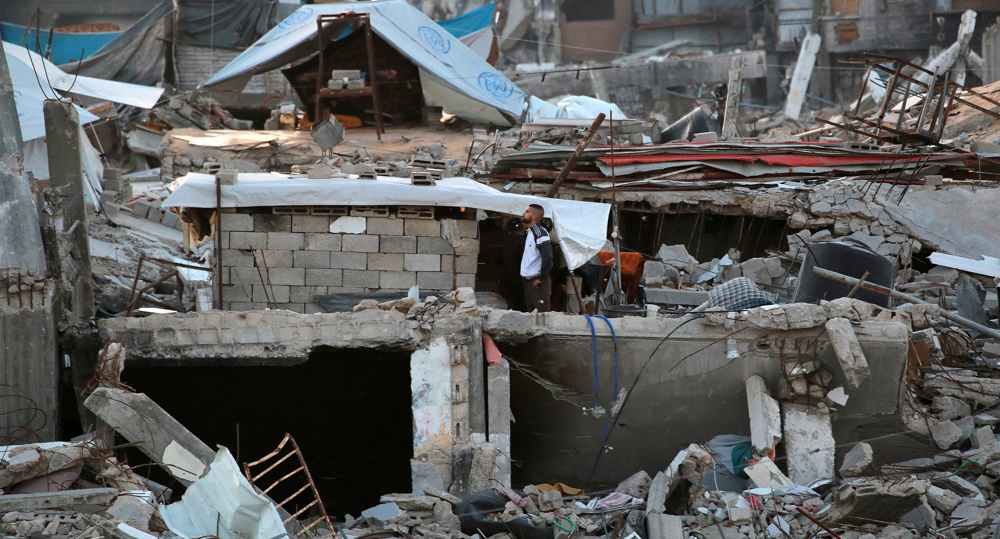Maldives declares state of emergency ahead of major anti-govt. protest
The Republic of Maldives has declared a state of emergency over 'threats to the national security', ahead of a planned protest against the government of President Yameen Abdul Gayoom.
The Maldivian Foreign Ministry said on Wednesday that the state of emergency would remain in force for 30 days.
The announcement came in the wake of a suspected attempt on Gayoom’s life in September. Officials said a homemade bomb was discovered inside a house near the presidential office.
Attorney General Mohamed Anil announced that the emergency was declared to safeguard public safety.
“The military and police found weapons and an explosive from two locations in their operations. Because these would be a threat to the public and the nation, the National Security Council has advised to take immediate steps to protect the people of Maldives,” the Maldivian attorney general said.
The state of emergency allows police and security forces to make arrests without warrant, while they could enter and search homes. Citizens will also be barred from traveling between the country’s islands and attend any protest or demonstration.
The main opposition Maldivian Democratic Party (MDP) had planned to hold a major anti-government demonstration on Friday, November 6.
The MDP says the government should release its leader and former president, Mohamed Nasheed.
The opposition leader was sentenced to 13 years in prison in March after the government convicted him under anti-terror laws. Nasheed was accused of ordering the arrest of a chief judge or forceful abduction and detention on Girifushi island, judicial officials said at the time.
On September 28, President Gayoom escaped unhurt from a blast in his speedboat. The Federal Bureau of Investigation (FBI), which inspected the blast, said it found no evidence that it was caused by a bomb. The government, however, said the blast was an assassination attempt.

The Maldives held its first multiparty elections in 2008, when Nasheed ended 30 years of autocratic rule by Gayoom's half-brother. The democratically elected leader, Nasheed resigned in 2012 in the face of popular protests and was later defeated by Gayoom in disputed votes in 2013.

China ‘firmly’ opposes countries making trade agreements with US at its expense

China says stands with Malaysia, region in face of unilateralism

Maldives bans entry of Israelis in ‘resolute solidarity’ with Palestinians
VIDEO | Gaza’s dire conditions hit unprecedented levels
VIDEO | Press TV's news headlines
VIDEO | Pakistan’s business and cultural front unites for Gaza: Nationwide shutdown, boycott announced
US jets carry out more aggression against Yemen
Syrian militants enslaving Alawite women in Idlib governorate: Report
VIDEO | US pro-Palestinian campus protest
VIDEO | Palestinian civil defense rejects Israel’s probe and exposes the crime
India downgrades ties with Pakistan after deadly Kashmir attack







 This makes it easy to access the Press TV website
This makes it easy to access the Press TV website